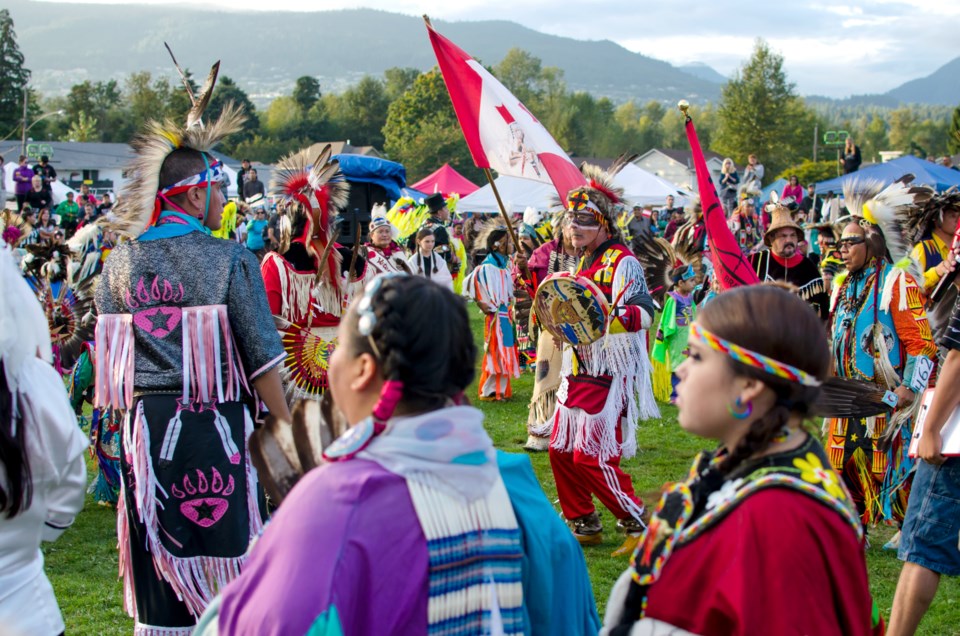Do you know what UNDRIP is? If the answer is no, you are likely among the majority of British Columbians.
With the B.C. government poised to endorse the United Nations Declaration on the Rights of Indigenous People (UNDRIP), there appears to be a lingering sense of unease within the province’s resource sector. Mining and forest industry officials wonder about the long-term impacts of what the U.N. describes as “a standard of achievement to be pursued in a spirit of partnership and mutual respect.”
“We do deserve to know,” says Stewart Muir, executive director of Resource Works, which describes itself as a non-profit research and advocacy organization supporting a respectful, fact-based public dialogue on responsible resource development.
Many First Nations leaders, such as Chief Judy Wilson of the Neskonlith Indian Band near Kamloops, define UNDRIP as a “foundational document” recognizing Indigenous human rights. For his part, Muir contends the impact on resource development could be far-reaching and potentially negative.
In short, they don’t know what they don’t know. While acknowledging the importance of the Indigenous people of British Columbia, Muir argues that the B.C. government’s failure to explain UNDRIP has created widespread concern within the business community.
“What’s happening is the bureaucracy has been directed by the politicians in Victoria to go out and implement this…and evidently, they’ve been told not to waste time talking to local interests like industry, lease holders, municipalities and regional districts,” says Muir.
“I think if you’re a forest company executive, you are extremely fearful of investing in B.C. with the current conditions.”
Muir’s concerns probably won’t be eased by Chief Wilson’s comments. While noting that the U.N.’s recognition of Indigenous human rights doesn’t include a veto over major capital projects, Wilson, the Secretary Treasurer of the Union of B.C. Indian Chiefs, is quick to point out that because of climate change, Indigenous voices are more necessary than ever to ensure greater focus on sustainable and renewable energy development:
“The path we are currently on can’t be sustained.”
While acknowledging her strong opposition to pipelines, Chief Wilson predicts that UNDRIP “will change the lives for all of us in Canada.”
For the BC Chamber of Commerce, the UNDRIP cup is half full.
“From our point of view, we recognize that reconciliation coming out of the Truth and Reconciliation Commission is a needed path forward to achieve certainty,” says Dan Baxter, Director of Policy Development and Government Stakeholder Relations.
Baxter points out that both the federal and provincial governments have clearly stated that UNDRIP doesn’t grant First Nations veto authority over resource projects. His organization is confident that officially recognizing Indigenous rights won’t cast doubt on 30 years of legal rulings.
“We firmly believe that Indigenous leaders want their communities to thrive,” says Baxter.
“They recognize that great paying jobs are a benefit. There is a win-win for everyone here.”
It should be noted, that within UNDRIP, one particular phrase is used eight times in the document: “Free, prior and informed consent.” It’s unclear what exactly that means.
In a province where most of its wealth has been created by the resource sector, the long-term impact of UNDRIP is unclear. While Premier John Horgan says recognizing the spirit of UNDRIP will help create certainty in the B.C. business community, decisionmakers with the province’s resource sector have yet to be convinced.
As always, I welcome your comments and criticism on Twitter @kammornanchor and email [email protected].
Bob Price is a veteran B.C. broadcaster who anchored the morning news on CHNL radio in Kamloops for the past 30 years. Bob is also a past Webster Award winner whose previous stops included Vancouver and Calgary.
SWIM ON:
- Carol Anne Hilton has a different perspective on what UNDRIP means.
- Dallas Smith on the record number of Indigenous candidates running in 2019's federal election, and what that means for the future.
- Roslyn Kunin on the opportunity presented by partnering with First Nations on projects like Ridley Terminal, and a way to invest in the future.



